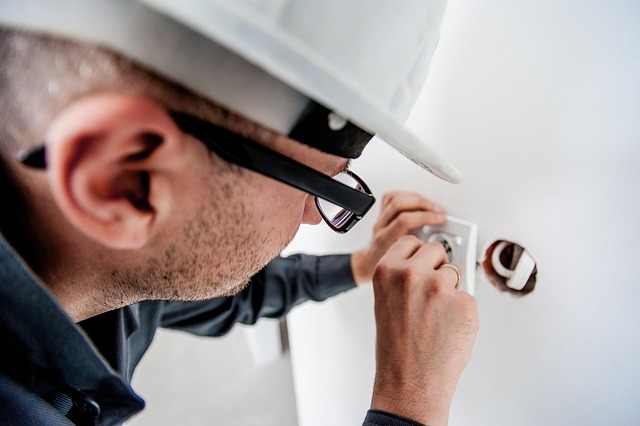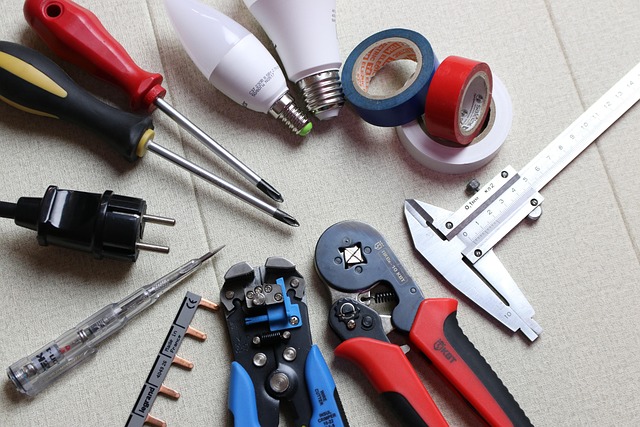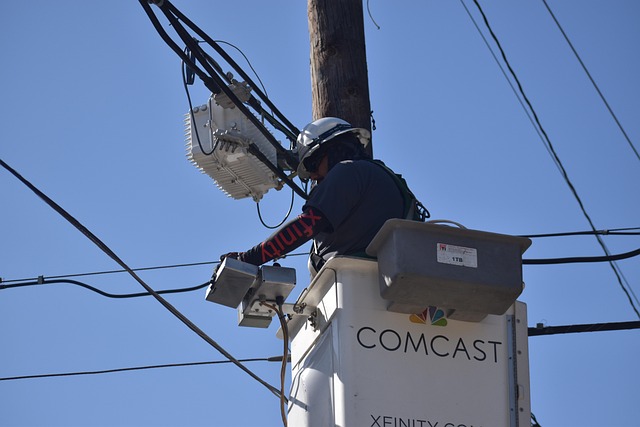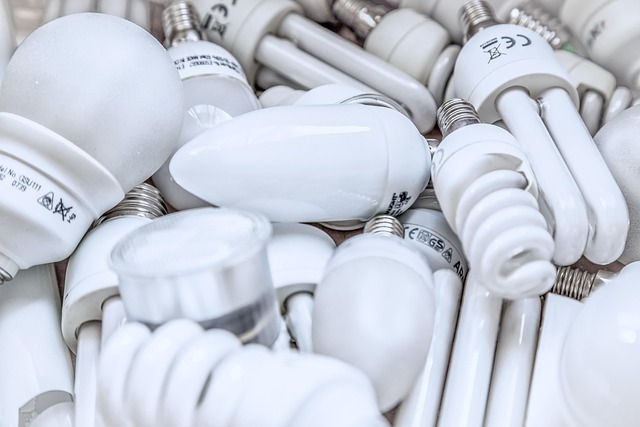EV charger installation in Eugene requires comprehensive planning and professional expertise for optimal functionality, safety, and convenience. Key considerations include local building codes, power requirements, charging speeds, and strategic placement for residential or commercial use. The process involves assessment, wiring, software configuration, testing, and ongoing maintenance to ensure reliable EV charging while promoting sustainable transportation.
“Looking to electrify your vehicle in Eugene? Discover the benefits of professional EV charger installation, a sustainable choice for eco-conscious drivers. This comprehensive guide explores the process, from understanding the technology and choosing ideal locations to the step-by-step installation and ongoing maintenance. Learn how professional setup ensures safety, enhances property value, and contributes to a greener future. Optimize your charging experience with our expert insights on EV charger installation.”
- Understanding EV Charger Installation: A Comprehensive Guide
- Benefits of Professional EV Charger Installation in Eugene
- Choosing the Right Location for Your EV Charging Station
- The Installation Process: Step-by-Step Breakdown
- Maintenance and Safety Considerations for Efficient EV Charging
Understanding EV Charger Installation: A Comprehensive Guide

Understanding EV Charger Installation: A Comprehensive Guide
When it comes to EV charger installation in Eugene, having a comprehensive understanding is crucial for a seamless and efficient process. It’s not as simple as plugging in a device; proper installation requires careful planning and consideration of various factors. The first step involves assessing your property, including available space and electrical infrastructure, to determine the most suitable charger type and location. This could range from residential wall boxes to commercial level fast-charging stations.
Additionally, EV charger installation experts must adhere to local building codes and regulations, ensuring safety and compliance. They will also take into account power requirements, which can vary based on vehicle types and charging speeds. A professional installer will provide guidance on the best practices for wiring, grounding, and circuit protection to guarantee a safe and reliable charging experience. This comprehensive approach ensures not only optimal functionality but also peace of mind for EV owners in Eugene.
Benefits of Professional EV Charger Installation in Eugene

Professional EV charger installation in Eugene offers numerous benefits for both homeowners and businesses. One of the primary advantages is increased convenience, as it allows easy access to electric vehicle (EV) charging at home or work, eliminating the need to search for public charging stations. This can significantly enhance the overall driving experience for EV owners.
Moreover, professional installation ensures safety, reliability, and efficiency. Expert technicians can install chargers that meet all necessary electrical codes and standards, reducing the risk of malfunctions or fires. Efficient EV charger installations also contribute to energy cost savings by optimizing charging times and managing electricity consumption, especially with smart charging technologies. This not only benefits individual drivers but also supports the broader transition towards sustainable transportation in Eugene and beyond.
Choosing the Right Location for Your EV Charging Station

When considering EV charger installation in Eugene, choosing the right location is paramount for convenient and efficient electric vehicle (EV) charging. The ideal spot offers easy access, ample space, and proximity to where EVs will be parked for extended periods, such as homes, workplaces, or public locations. For residential setups, it’s beneficial to install the charger near a garage or designated parking area, ensuring convenience and safety. In commercial settings, dedicated EV charging stations in parking lots or employee areas can significantly enhance employee satisfaction and productivity by providing hassle-free access for their electric vehicles.
When making this decision, consider factors like structural integrity, power availability, and potential obstructions. It’s crucial to consult with professional EV charger installers who can assess the site and recommend the most suitable location based on these considerations. This strategic planning guarantees a well-integrated charging solution, enhancing the overall EV ownership experience for users in Eugene.
The Installation Process: Step-by-Step Breakdown

The process of installing an EV (electric vehicle) charger, also known as an electric vehicle supply equipment (EVSE), involves several meticulous steps to ensure safety and efficiency. It begins with a thorough assessment of the site, considering factors like suitable electrical panel access, circuit capacity, and the type of EV charger required for your specific vehicle model. Next, a licensed electrician will determine the best location for the charger, often near the main electrical panel or in a dedicated circuit to avoid overloading.
Once the optimal placement is identified, the electrician will install the charging station itself, connecting it to the electrical system and ensuring all safety protocols are adhered to. This includes grounding mechanisms and overcurrent protection devices. After the hardware installation, software configuration follows, programming the charger to meet your vehicle’s power requirements and providing user-friendly features like remote monitoring. The final step involves testing and inspection, verifying the charger’s functionality and safety before it’s made accessible for daily use.
Maintenance and Safety Considerations for Efficient EV Charging

When it comes to professional EV charger installation in Eugene, proper maintenance and safety considerations are paramount for efficient electric vehicle (EV) charging. Regular cleaning and inspection of charging stations are essential to prevent dust buildup and ensure optimal performance. Additionally, using high-quality materials and components during installation minimizes the risk of electrical hazards, such as fires or shocks.
Safety features like circuit breakers, ground fault circuit interrupters (GFCIs), and proper grounding are critical components of EV charger installations. These measures protect both the vehicle and the charging station from potential damage or accidents. Regularly updating firmware and staying informed about industry standards further enhances safety, ensuring that your EV charging infrastructure remains up-to-date and secure.














